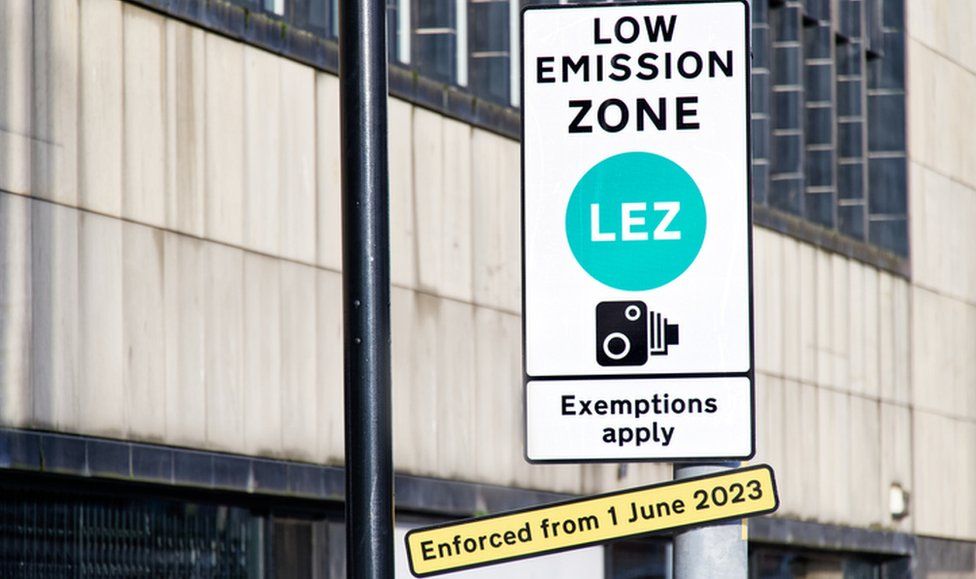
A last minute legal challenge against Glasgow’s low emission zone has been thrown out by a judge.
The scheme to ban more polluting vehicles from the city centre will start at midnight.
Patons Accident Repair Centre took the case to the Court of Session in Edinburgh in a bid have it suspended ahead of further court action.
It accused Glasgow City Council of not consulting properly and putting businesses at risk.
But a judge at the Court of Session refused the motion and said the balance of convenience lay heavily in favour of the local authority and granted it expenses of the hearing.
The case was brought by Patons Accident Repair Centre, which estimated it would lose a third of its business when it could no longer repair older vehicles.
Its workshop on Lister Street is about 500m (0.3 miles) inside the LEZ boundary and is situated in Townhead, an area with several car dealerships north of the city centre.
Four of those business previously joined Patons to propose a new boundary for the LEZ, but it was rejected by the council.
Company director William Paton told the Glasgow Times he did not think his business would last another two years within the low emission zone.
Image source, Google
Patons Accident Repair Centre estimated it would lose a third of its business when it could no longer repair older vehicles
The zone was conceived to tackle poor air quality, with many streets in Scotland regularly reaching harmful and illegal levels.
Vehicles which do not meet emission standards will no longer be able to enter parts of the city centre after midnight.
Violations can lead to fines mounting to several hundreds of pounds per day.
While there are exemptions available for blue badge holders, motorbikes, mopeds and emergency vehicles, in general petrol cars made before 2005 and diesels built before September 2014 will not be allowed in the zone.
Scottish Conservative transport spokesman Graham Simpson MSP said the legal challenges illustrated the way in which the “practical concerns of local businesses and communities have been ignored” by Glasgow’s SNP and Green councillors.
“We all want to see a reduction in pollution and to meet environmental targets, but there is evidence that air quality is already meeting those standards, and that phase two will not result in further improvements,” he said.
“Homeless charities and other groups, including St Andrews First Aid, have said they would be prevented from operating effectively. There is an obvious danger to women and vulnerable groups, as well as shift workers, if late-night transport is unavailable.
“No matter the judgment in this particular case, there is an urgent need for Glasgow’s SNP-led council to address the flaws in this scheme as a matter of urgency.”








